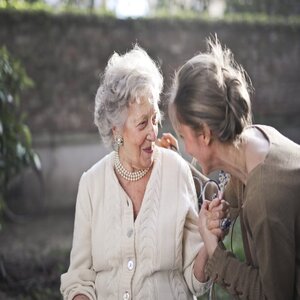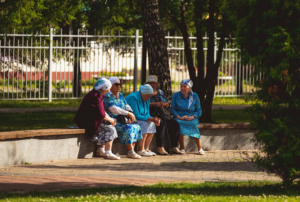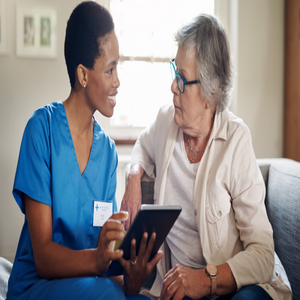As people age, their need for care and support increases. Addressing these needs is challenging in the advent of formal and informal care systems in most countries. Remaining in good health requires more than prescribing medications and employing treatments.
In order to address these needs properly, a profound understanding from the elderly’s point of view is needed. These may be based on body functions, activities and participation, and environmental factors.
Understanding Care and Support Needs of the Elderly
When taking care of your aging loved ones, you would want to make sure they’re handled with utmost care and patience. It may be a hard task to constantly be on the lookout, but always keep in mind that it’s also difficult for them to be dependent on someone else for their care.


Common observations are changes in mental functions and mood status. Depression, anxiety, dementia, and irritability are some of the usual problems the elderly face together with certain comorbidities. When not addressed, these conditions may contribute to a patient’s poor prognosis.
Physical limitations like inability to walk, impaired digestive system, visual impairment, and breathlessness affects the overall ability of the elderly to enjoy activities of daily living. They may also need help in dressing, washing, and toileting. Managing these problems entails constant support and treatment to return to their baseline function. However in doing so, it is necessary to provide minimum to moderate participation on their part in order to provide that sense of independence despite these libations.
Tips in Addressing Their Needs
To provide the best care and support for the elderly, the following should be considered:
Care at home setting – it may be necessary to find a health care provider that is willing to provide care outside of the hospital setting. This may come in the form of home visits and telehealth appointments. It is also vital to be there for supervision during these visits and consults. Ready a notepad solely to keep note and track of all the instructions given by the health care provider.
Encouraging independent decision-making – despite the inevitable dependency, our elderly loved ones would want to feel like they’re still in control in deciding what type of care they would want to receive, and where and when they want it. Giving them this freedom helps boost their sense of well-being and will encourage them to regain independence in some, if not most, areas of their lives.


Inclusivity – social gatherings and intimate family dinners help provide that sense of belonging and warmth that the elderly seek for at this stage of their lives. It helps to plan for plays or regular family get-togethers, like celebrating birthdays or the holiday seasons together. Isolation can only aggravate negative emotions that may affect the overall response of the elderly to treatment as it causes significant emotional distress among them.
Constantly check their medications – compliance to medication is vital in maintaining an appropriate response to whatever’s deranged in their system and ultimately provide optimum medical attention to their health condition. As they depend on you to keep things on schedule, it is apt to create a sheet reminder of their regimen to avoid skipping any doses.
Be informed and updated with the latest technology – be up-to-date with the latest technology that could help improve every aspect of care your elderly loved ones receive. Technological changes may range from downloading new apps for Telehealth or upgrading monitoring systems that’s connected to a centralized coordinated care network.
Explore insurance options – investigate the long-term care options for your loved ones in detail and decide which is the most advantageous. It is also healthy to have open discussions about their financial status to gauge which insurance could fit in the given budget, without compromising quality.
Schedule exercises and outdoor activities – keep the elderly fit and active by scheduling exercises. Take occasional walks or trips to the park, beach, or somewhere calming. Find some resources within and beyond your community to take them to it. Doing so will not only keep them physically fit, but also mentally well.
Supplying healthy meals – cooking their own meals may be difficult or nearly impossible for elderly who are critically ill, that’s why supplying them with healthy meals could just brighten up their day a little better. It is important that they are fed well and are receiving the appropriate nutrients they should.
How to be an effective caregiver?
Oftentimes, family members could be the best caregivers for they know the patients way better and these patients may be more comfortable with a familiar face taking care of them than some other stranger. But of course, it could be a case to case basis. To be an effective caregiver, you must be sensitive to the needs of the patient and have the initiative to put various things like the patient’s mental, physical, and emotional needs into perspective. You must be able to address them in a timely and organized manner that improves their quality of life. Availability and technical skills are two vital categories to look into when outsourcing for help. At the end of the day, you would want nothing but the best for your elderly loved ones.













